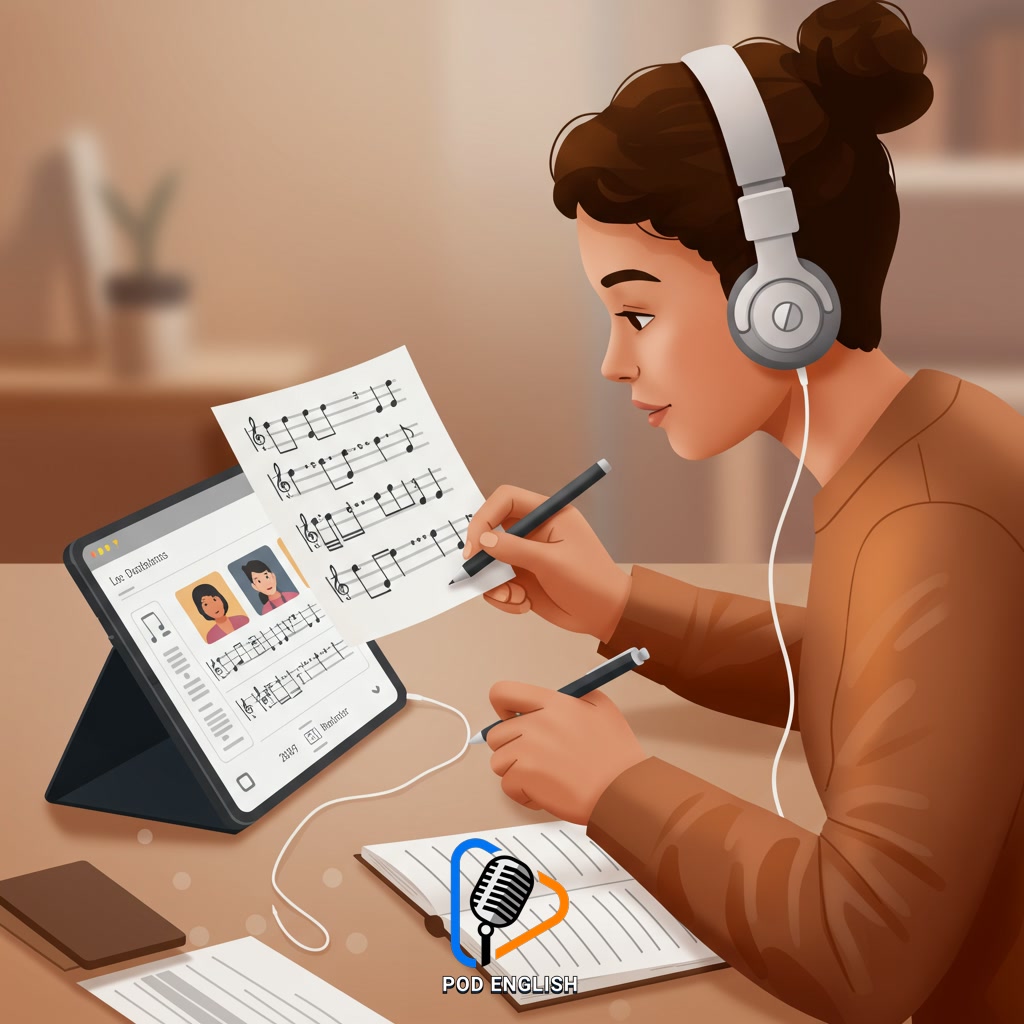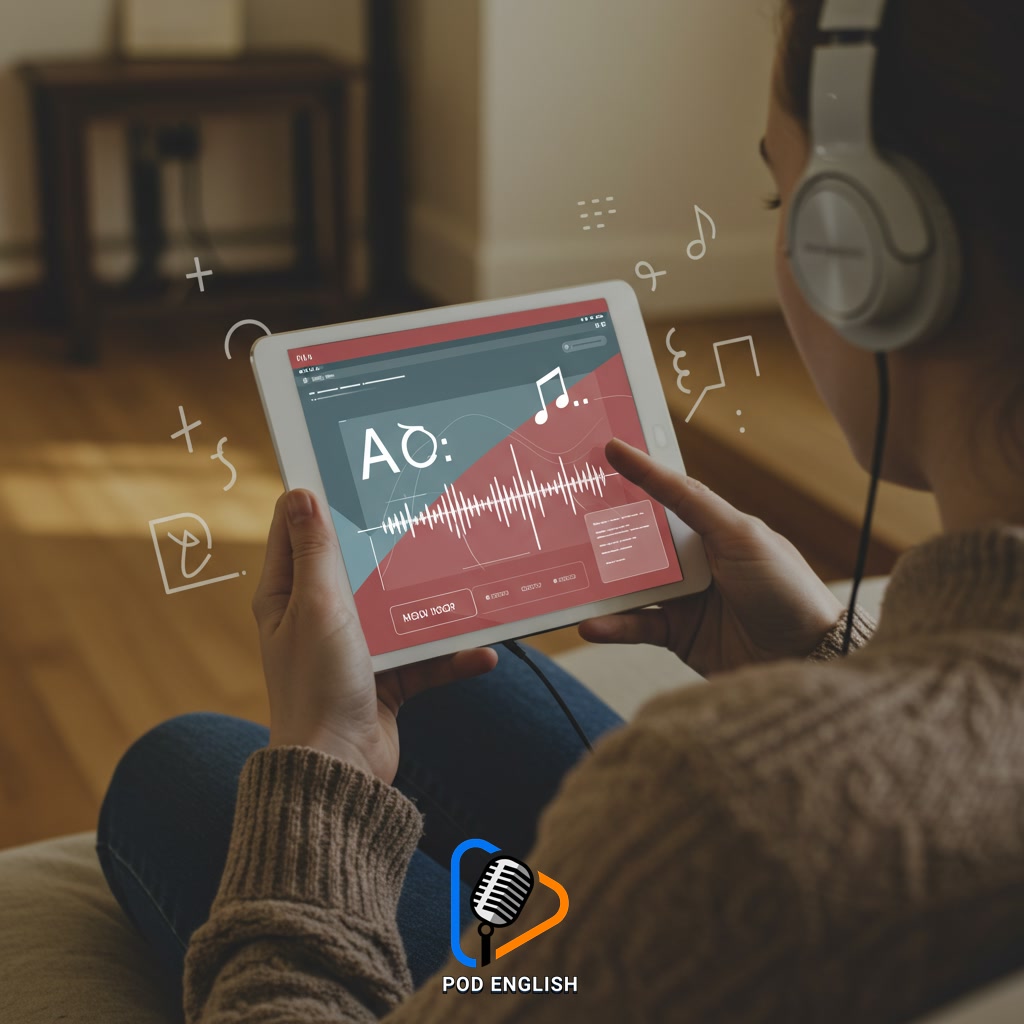Learn English
Enhance Your English Learning With Music Study

This content explores how incorporating music into your routine can significantly improve your English language skills. It details various methods and practical approaches for using songs to enhance vocabulary acquisition, listening comprehension, and pronunciation. Discover effective strategies to leverage the power of music as a dynamic tool for advancing your English proficiency.
Table of Contents
- Section 1: The Power of Music in English Language Acquisition
- Section 2: How Music Enhances Specific English Skills (Listening, Vocabulary, Pronunciation, Grammar)
- Section 3: Practical Strategies for Learning English Effectively with Music
- Section 4: Finding the Right Music and Utilizing Resources
- Section 5: Beyond Language: Motivation and Cultural Understanding Through Music
Section 1: The Power of Music in English Language Acquisition
Music is far more than just entertainment; it holds significant power in the journey of acquiring a new language, especially English. Engaging with music activates various areas of the brain, including those crucial for processing sound, rhythm, and memory – all vital components of language learning. The inherent rhythm and melody in songs can naturally improve your understanding of English pronunciation and intonation patterns. Repeated exposure to lyrics helps reinforce new vocabulary and common phrases in context, making them easier to remember and use. Furthermore, listening to different singers and styles enhances your listening comprehension skills. The emotional connection we often have with music makes the learning process more enjoyable, less intimidating, and ultimately more effective. Integrating music into your study routine taps into a natural human inclination, transforming passive listening into an active tool for enhancing your English proficiency.

The Power of Music in English Language Acquisition
Section 2: How Music Enhances Specific English Skills (Listening, Vocabulary, Pronunciation, Grammar)
Music actively engages your auditory processing, making it a powerful tool for enhancing specific English skills. Listening to songs helps you train your ear to the rhythm, stress, and intonation of English, significantly boosting listening comprehension. Repeated exposure to lyrics introduces new vocabulary and phrases in context, aiding memorization and understanding of natural language use. Mimicking singers can improve pronunciation by encouraging you to articulate sounds and connect words smoothly. Furthermore, analyzing song lyrics can subtly reveal grammatical structures and sentence patterns, providing practical examples of English grammar in action. By integrating music, you create a multi-sensory learning experience that reinforces these crucial language components.

How Music Enhances Specific English Skills (Listening, Vocabulary, Pronunciation, Grammar)
Section 3: Practical Strategies for Learning English Effectively with Music
To practically leverage music for English learning, move beyond passive listening. Engage actively by finding the lyrics to songs you enjoy. Read along as you listen to connect spoken words with their written form, which significantly boosts vocabulary and spelling recognition. Don’t hesitate to pause, repeat lines, and even sing along; this is excellent practice for improving pronunciation, rhythm, and intonation. Additionally, analyzing song structures, common idioms, and grammar points within the lyrics provides valuable insights into natural English usage. Selecting music with clear vocals and genres you like ensures sustained motivation and makes the learning process both effective and enjoyable.

Practical Strategies for Learning English Effectively with Music
Section 4: Finding the Right Music and Utilizing Resources
Choosing the right music is crucial for effective English learning. Look for songs with clear pronunciation and themes that interest you, as this makes engagement easier. While popular hits are great, also explore genres or artists known for accessible lyrics. Utilize online resources extensively; websites dedicated to lyrics allow you to read along, which is vital for connecting spoken sounds to written words. Many music streaming apps now offer integrated lyric displays. Additionally, language learning platforms sometimes feature music-based lessons. Don’t be afraid to revisit songs; repeated listening and reading reinforce vocabulary and grammar patterns. Finding music you genuinely enjoy will transform this learning method from a chore into a pleasurable and productive activity.

Finding the Right Music and Utilizing Resources
Section 5: Beyond Language: Motivation and Cultural Understanding Through Music
Listening to English music offers benefits far beyond just language practice. It can be a powerful source of motivation. When you genuinely enjoy the songs you use, the process of learning feels less like work and more like a hobby. This enjoyment helps you stay engaged and overcome challenges. Furthermore, music serves as a window into the cultures of English-speaking regions. Lyrics often explore themes, stories, and perspectives unique to those cultures. By exploring different genres and artists, you gain insight into social nuances, historical contexts, and diverse ways of life. This cultural connection makes the language feel more alive and relevant, deepening your understanding and appreciation, and reinforcing your motivation to learn English.

Beyond Language: Motivation and Cultural Understanding Through Music













